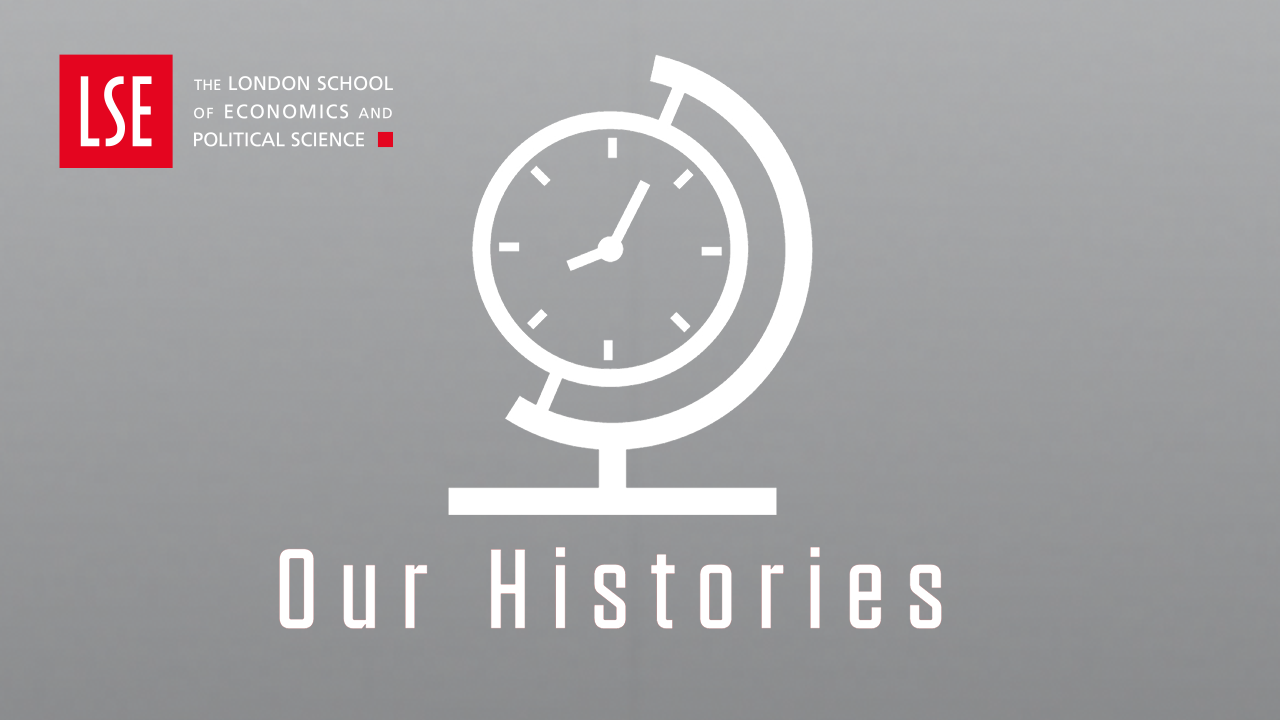Episodes
Published 09/08/21
Contributor(s): Tanya Harmer | Tanya Harmer discusses her recent biography of Beatriz Allende (1942–1977), revolutionary doctor and daughter of Chile’s socialist president, Salvador Allende. She explains how, inspired by the Cuban Revolution, Beatriz and her generation influenced developments in Chile, and how the terrible consequences of the coup drained Beatriz of the dreams she once had.
For further information about the Department of International History, please visit...
Published 09/08/21
Contributor(s): Taylor C. Sherman | Taylor C. Sherman discusses her forthcoming book, reassessing the Nehru years in Indian history. Here she focuses on Indian socialism as it developed during Jawaharlal Nehru's premiership, and explains how it was shaped by the experience of colonialism and the national movement.
Nehru's India: Seven Myths is due out with Princeton University Press in 2022.
For further information about the Department of International History, please visit...
Published 06/22/21
Contributor(s): Paul Stock | Paul Stock explores what geographical reference works, textbooks, dictionaries, and encyclopaedias tell us about literate Britons' understandings of Europe in the late eighteenth and early nineteenth centuries.
For further information about the Department of International History please visit www.lse.ac.uk/International-History
Published 12/12/20
Contributor(s): Dina Gusejnova | Who thought of Europe as a community before its economic integration in 1957? Dina Gusejnova explains how a supranational European mentality was forged from depleted imperial identities. In the revolutions of 1917 to 1920, the power of the Hohenzollern, Habsburg and Romanoff dynasties over their subjects expired. She discusses a group of German-speaking intellectuals of aristocratic origin who became pioneers of Europe's future regeneration.
For further...
Published 11/05/20
Contributor(s): Matthew Jones | Matthew Jones draws on his official history of the UK strategic nuclear deterrent to discuss the strategic, political and diplomatic considerations that compelled UK governments, in the face of ever-increasing pressures on the defence budget, to persist in their efforts to develop nuclear weapons and to deploy a credible nuclear force. For further information about the Department of International History please visit www.lse.ac.uk/International-History
Published 01/17/20
Contributor(s): Matthew Jones | Matthew Jones draws on his official history of the UK strategic nuclear deterrent to discuss the strategic, political and diplomatic considerations that compelled UK governments, in the face of ever-increasing pressures on the defence budget, to persist in their efforts to develop nuclear weapons and to deploy a credible nuclear force. For further information about the Department of International History please visit www.lse.ac.uk/International-History
Published 01/17/20
Contributor(s): Megan Black | Megan Black explains how the Department of the Interior - a government organ best known for managing domestic natural resources and operating national parks - has constantly supported and projected American power
Published 09/06/19
Contributor(s): Megan Black | Megan Black explains how the Department of the Interior - a government organ best known for managing domestic natural resources and operating national parks - has constantly supported and projected American power
Published 09/06/19
Contributor(s): Imaobong Umoren | Imaobong Umoren discusses the lives of three black activist women: Eslanda Robeson, Paulette Nardal, and Una Marson. She explains how, between the 1920s and the 1960s, the trio participated in global freedom struggles by traveling; building networks in feminist, student, black-led, anticolonial, and antifascist organizations; and forging alliances with key leaders. This made them race women internationalists—figures who engaged with a variety of...
Published 06/20/19
Contributor(s): Imaobong Umoren | Imaobong Umoren discusses the lives of three black activist women: Eslanda Robeson, Paulette Nardal, and Una Marson. She explains how, between the 1920s and the 1960s, the trio participated in global freedom struggles by traveling; building networks in feminist, student, black-led, anticolonial, and antifascist organizations; and forging alliances with key leaders. This made them race women internationalists—figures who engaged with a variety of...
Published 06/20/19
Contributor(s): David Stevenson | David Stevenson discusses the key events of the year 1917, a turning point in the history of WWI and the evolution of the modern world. He explains how the war was transformed during that year, but also what kept it going and why it continued to escalate.
Published 05/28/19
Contributor(s): David Stevenson | David Stevenson discusses the key events of the year 1917, a turning point in the history of WWI and the evolution of the modern world. He explains how the war was transformed during that year, but also what kept it going and why it continued to escalate.
Published 05/28/19


